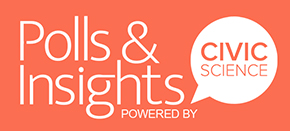As Americans prepare to celebrate the Fourth of July, a recent CivicScience survey of 2,764 U.S. adults reveals interesting differences between those who purchase fireworks and those who leave the pyrotechnics to others.
Let us know: Do you typically buy fireworks for the Fourth of July?
This article’s data comes solely from CivicScience’s database, which contains nearly 700,000 poll questions and 5 billion consumer insights. Our AI content creation tool, DataScribe, supported the article.

